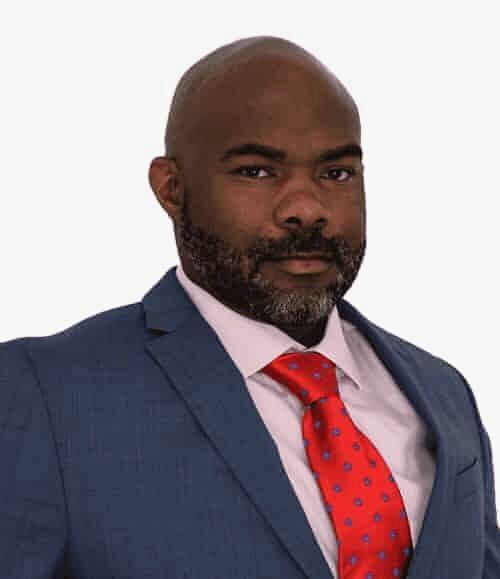What Is 12 Step Facilitation?
12 Step Facilitation Therapy (TSF) is a manual-guided treatment approach developed for drug and alcohol dependence. It is designed to promote sobriety and encourage becoming actively involved and participate in the 12 Step recovery programs such as Narcotics Anonymous (NA), Alcoholics Anonymous (AA), and Cocaine Anonymous (CA).
Recovery from substance use disorders (SUD) is linked to successful long-term outcomes while involved in 12 step programs. These groups serve as the main, if not only, source of changing behaviors to maintain freedom from drug abuse and dependence.
Twelve step facilitation is easily accessible and conveniently available at no cost in communities worldwide, providing readily available resources in substance abuse treatment.
The Department of Mental Health and Addiction Services (DMHAS) recognizes 12 step facilitation as an effective, evidence-based addiction treatment practice ingrained in multiple addiction treatment programs.
What Are the Four Core Concepts of 12 Step Facilitation?
The four core concepts of 12 step facilitation are assessment, acceptance, surrender, and getting active.
- Assessment, evaluating a person’s level of drug use, drug and alcohol history, patterns of drug use, tolerance, motivation to stay sober, and previous involvement in treatment programs
- Acceptance, an acknowledgment that drug and alcohol addiction is a chronic illness, that there is an inability to control substance use, and that abstinence is the only choice
- Surrender, after accepting a loss of control, it is a willingness to have faith in a higher power that can help previously defeated willpower and receive the support and strength of the fellowship to help sustain their recovery
- Getting Active, getting involved, participating, and sharing in 12 step program meetings, in addition to getting a 12 step sponsor

What Are the 12 Steps?
These 12 steps are intended for any addictive and dysfunctional behavior, not a particular drug; there is no distinction between drugs and alcohol. The following are the 12 steps of NA adapted from the original 12 Steps of AA:
Step 1: We admitted we were powerless over our addiction, that our lives had become unmanageable.
Step 2: We came to believe that a Power greater than ourselves could restore us to sanity.
Step 3: We made a decision to turn our will and our lives over to the care of God as we understood Him.
Step 4: We made a searching and fearless moral inventory of ourselves.
Step 5: We admitted to God, to ourselves, and to another human being the exact nature of our wrongs.
Step 6: We were entirely ready to have God remove all these defects of character.
Step 7: We humbly asked Him to remove our shortcomings.
Step 8: We made a list of all persons we had harmed, and became willing to make amends to them all.
Step 9: We made direct amends to such people wherever possible, except when to do so would injure them or others.
Step 10: We continued to take personal inventory and when we were wrong promptly admitted it.
Step 11: We sought through prayer and meditation to improve our conscious contact with God as we understood Him, praying only for knowledge of His will for us and the power to carry that out.
Step 12: Having had a spiritual awakening as the result of these steps, we tried to carry this message to addicts, and to practice these principles in all our affairs.

History of the 12 Steps
In 1935, the 12 steps were written by Bill Wilson and Dr. Robert Holbrock Smith, the founds of Alcoholics Anonymous, affectionally known by AA group members as ‘Bill W’ and ‘Dr. Bob.’ They created the 12 steps by combining philosophy, religion, and structure from the Bible to free people of addiction and grow in freedom and happiness.
What Is the Twelve Step Facilitation Handbook?
The first book about the 12 step program titled “Alcoholics Anonymous,” known as ‘The Big Book’ or ‘The Bible for Alcoholics Anonymous,’ was published in 1939 and became the foundation of addiction treatment and functioned as the fundamentals for spiritual and character improvement.
Project MATCH
Project MATCH is a large-scale clinical trial sponsored by the National Institute on Alcohol Abuse and Alcoholism (NIAAA) on how a person’s treatment approach relates to their outcome. Psychotherapists administered the trials, and the three types of treatments were investigated:
- 12 Step Facilitation Therapy (TSF)
- Cognitive-Behavioral Therapy (CBT)
- Motivational Enhancement Therapy (MET)
Ultimately, there was no significant difference in sustained sobriety among the treatment therapies. However, outpatients who received 12 step facilitation were more likely to stay entirely abstinent after treatment than those who received the other two treatments.
People who participated in one of the three types of treatment approaches in Project MATCH displayed reduced use of other drugs, depression, substance-related problems, and decreased health issues during the 12 months after treatment, the period of time which most relapses happen.

Power of the Group
Drug addiction is isolating, and the company it keeps can make sobriety seem impossible. An essential and practical element of support groups is the fellowship and connection you make when you become a member of a group of people fighting the same battles as you.
12 step group activities can be your most incredible recovery tool. Social interactions with new acquaintances such as recovering drug and alcohol addicts can help you have a new perspective, that you are not alone.
Northridge Addiction Treatment Center understands the value of 12 step facilitation therapy in recovery and integrates its principles into our evidence-based treatment programs.
At NATC, our residents participate in 12 step meetings surrounded by supporting and encouraging staff and residents. The unique connections in fellowships help develop structure, coping skills, and goal orientation to practice natural rewards that replace substance use.
Let us help make your journey to a better life easy. Reach out today to speak to an admissions specialist.




